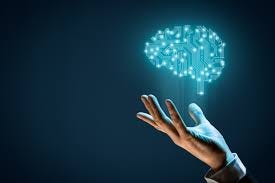Introductory remark: The subtitle of this blog is “Philosophy, economics, and random thoughts”. What follows definitely belongs to the last category!
In his lecture “Science as a Vocation”, Max Weber famously characterized modernity in terms of a change in our views about the nature of the world:
“The fate of our time is characterized by rationalization and intellectualization and, above all, by the ‘disenchantment of the world’.”
Weber’s historical and socioeconomic analysis of modern capitalism is entirely organized around the key thesis that its nature as well as its origins are related to the increasing rationalization of our practices and, more fundamentally, of our ontologies.[1] According to Weber, the modern form of capitalism as it started to develop in the 16th century in Italian cities is characterized by a growing predictability of the behavior of individuals and organizations, the systematic reliance on rational calculation, especially monetary calculation, and the predominance of impersonal relations where the same rules apply to everyone.
The notion of “rationalization” that Weber mentions several times in his writings in part refers to the idea that everything in our world can be explained by systematic methods. These systematic methods in turn can be used to act on the world and produce predictable outcomes. In sum, a rationalized worldview is one that takes the world to be explainable and predictable, and because of that, a world that we can command.
The “disenchantment of the world” that Weber identifies is one of the by-products of the rationalization process, where “the ultimate and most sublime values have retreated from public life either into the transcendental realm of mystic life or into the brotherliness of direct and personal human relations.” In a disenchanted world, there is no room for mystical beliefs and values based on them in the public space. They are outside the domain of rationality and because of that, can no longer serve as a basis for the organization of social life. They must retreat to the private sphere.
Weber’s analysis was concerned with the disenchantment of the outer world. I would suggest that the recent advances in AI, made concrete and public recently by ChatGPT our Midjourney, are likely to participate in the future – if that’s not already the case – to a disenchantment of the inner world. Current concerns with AI are mostly economic. Many are worrying that AI will destroy jobs, especially intellectual jobs without any prospect of the creation of an equivalent number of new jobs. AI may finally lead to the realization of the Luddite nightmare, a world where most workers are deprived of their means of existence. This would induce in the meantime an explosion of economic inequalities. Most of the income from production would end in the hands of the owners of AI. A capitalist economy may not be sustainable in these circumstances. The progress of AI is somehow contributing to reinforcing the rationalization of our society, by contributing to making social relationships even more impersonal – imagine interacting with a machine instead of a doctor or a teacher. Algorithms treat personal data fully impersonally. Persons literally disappear behind the data they generate. We are stopping existing as persons; we are existing as data. This makes “our” behavior more and more predictable, though this is not really our behavior that is predicted, the behavior of a mass of people impersonally merged.
The progress of AI also leads however to a different kind of disenchantment, which may be even more fundamental. The rationalization process may have forced the retreat of mystical beliefs to the private sphere, but at least it was still possible to believe that what makes being a human cannot be fully rationalized. Imagination, creativity, understanding, or meaning were thought to be human properties defying prediction and systematization. You can rationalize the organization of society, not the organization of human minds. But more and more this appears not to be true. Not only AI is able to predict our behavior. They can reproduce it and even maybe improve it, including in domains where genuinely human qualities are at stake. ChatGPT or Midjourney is far from being a perfect substitute for the human mind. But it is highly likely that one day they will be able to reproduce exactly the qualities that define us. It will then be obvious that our mind has nothing special but quite the contrary can be fully emulated and rationalized. This poses a real existential question. In a world where everything is rationalized, including our thoughts and in general, what is happening in our “inner world”, where is the retreat for our “mystical” beliefs? On this view, the hypothetical emergence of artificial general intelligence would not only change our society and the conception we have of it, but it would also change our conception of ourselves and therefore also probably change us. It would have to be seen as the culmination of the process that started some six centuries ago.
[1] In what seems like a past academic life, I’ve written a paper (my very first peer-reviewed one by the way) comparing Weber’s and Veblen’s respective accounts of the “rationalization process” leading to modern capitalism. The paper seems now to be freely accessible here.




